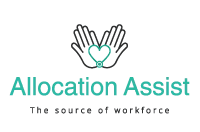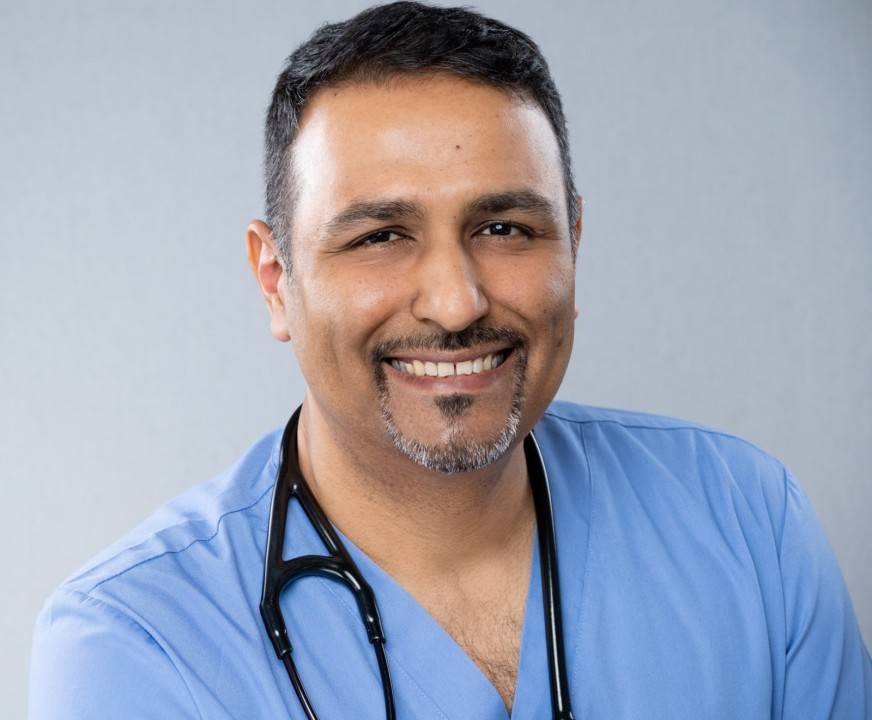Dr. Omar Bani-Saad is a UK-trained consultant with dual CCT (FRCP and FFICM), having completed his specialist training in both critical care medicine and acute internal medicine. Dr. Omar has a wide range of expertise in general and surgical critical care, neurocritical care, cardiothoracic critical care, and acute internal medicine. During his training, he also gained experience in pediatric critical care and major trauma management. In addition, Dr. Omar has special interests and qualifications in teaching (FHEA), medical ethics (PG Dip. Med. Ethics and Law), and quality improvement.
Dr. Omar was a consultant at Royal Stoke University Hospital in Stoke-on-Trent and University Hospital Coventry before relocating to Sheikh Khalifa Medical City, Abu Dhabi, in August 2023.
At Allocation Assist, we keep in contact with our doctors after they relocate. It was great catching up with Dr. Omar and learning about his experiences working in Abu Dhabi.
Dr. Omar, thank you so much for taking the time to talk to us. Can you start by telling us about your background, specialist training, and experience in the UK?
Following my graduation from medical school in Baghdad, Iraq, I worked in a few different countries as a junior doctor. Between 2008 and 2012, I worked in Dubai, and while I was at American Hospital Dubai. I completed the required exams and qualifications to enable me to go do my specialist training in the UK. When I arrived in the UK, I worked first in Wales before starting my specialist training in England in the West Midlands.
I received comprehensive training and gained a lot of experience in various hospitals within the West Midlands region. For example, at the QE University Hospital in Birmingham, a very large teaching hospital with one of the largest ICUs in Europe, I gained great experience, including looking after patients undergoing advanced cardiac interventions and heart-lung transplantation.
I underwent advanced trauma training, including neurocritical care and surgical critical care, in Stoke-on-Trent and Coventry and gained experience in advanced paediatric critical care at Birmingham Children’s Hospital. For my Acute Internal Medicine qualification, I received comprehensive training in acute medicine, acute cardiology, respiratory care of the elderly, and ambulatory care, completing my rotations in 7 district general and university hospitals within the West Midlands.
I completed my specialist training (CCT) towards the end of 2019 and became a consultant in intensive Care and internal medicine at the Royal College of Physicians.
Why did you choose to specialise in critical care and acute internal
Both specialties can be demanding, but I find my work very rewarding and exciting. In all specialties, doctors contribute to saving lives, but working in critical care and acute internal medicine, we see more immediate results in preserving lives. It can be stressful, but I have drawn on my experiences working in a warzone early in my medical career. Even when a patient cannot be saved, their families appreciate that we have done everything possible, which often offers comfort in the most difficult circumstances. I feel privileged to be able to make a difference for my patients and their families.
What was it about the UAE that attracted you to relocating here?
When I previously worked in Dubai, I recognised that the UAE is a very forward-thinking and ambitious country. Since that time, the healthcare sector has expanded even more. There is a spirit of positivity here and a great emphasis on patient well-being and psychological satisfaction, which I appreciate. I also wanted to be closer to my parents, as they are getting older. With two international airports within reach and great flight connections it is much easier for my extended family to visit us. Furthermore, Abu Dhabi is one of the safest cities in the world and offers a fantastic mix of rich culture and high-quality modern life.
Why did you choose Sheikh Khalifa Medical City in particular?
Sheikh Khalifa Medical City (SKMC) is a flagship tertiary government hospital in the UAE and the largest teaching medical centre in Abu Dhabi. I needed to be in a large tertiary hospital with excellent facilities and staff, and SKMC has a great reputation in the local community and the wider region. Sheikh Khalifa Medical City has a 29-bed Intensive Care Unit and one of the largest and most advanced pediatric ICUs in the region.
It is a specialist centre for neurosurgery and medicine (pediatric cardiac surgery and treatment of congenital cardiac conditions), as well as many other adult and paediatric subspecialties. The hospital has the UAE’s first and most comprehensive kidney transplant centre and is the sole provider of careiatric kidney transplant services in the Emirate of Abu Dhabi. Here, I am able to utilise all my skills and training and see a wide range of patients requiring comprehensive critical care and acute medicine.
How have you found the experience of working in Abu Dhabi compared to the UK?
We have an expert team of highly skilled international consultants and great facilities at SKMC. The hospital provides excellent support for doctors and other staff, enabling us to provide the best evidence-based medicine. There are lots of training and continuing medical education opportunities at SKMC and other centres in Abu Dhabi. Families are very appreciative and thankful, even when things are difficult.
In Abu Dhabi, we have good referral pathways with designated specialist centres for specific subspecialties. For example, while kidney transplants, pediatric organ transplantation, and cardiac surgery are performed at SKMC, adults requiring cardiac surgery or heart and lung transplants are seen at Cleveland Clinic Abu Dhabi.
Collaboration between hospitals in both the public and private sectors enables seamless transfer of patients for emergency and critical care. In this way, the system in Abu Dhabi functions in a similar fashion to the NHS referral system, ensuring patients find the right specialist treatment.
My practice is as advanced as when I was working in the UK. I am also learning new skills. For example, at SKMC, we offer extracorporeal membrane oxygenation (ECMO) life support, which is only available in larger centres. ECMO requires a highly advanced skill mix and team members with special training and experience in this procedure.
Can you explain what ECMO is and when it is used?
Extracorporeal membrane oxygenation (ECMO) can be used to help critically ill patients with potentially reversible heart and lung conditions and can be an option when other life support measures haven’t worked. ECMO involves pumping blood outside the body to a lung or a heart-lung machine that removes carbon dioxide and sends oxygen-filled blood back to tissues in the body. In critical care situations, this method allows the blood to “bypass” the heart and lungs, allowing these organs to rest and heal. It is literally a life-saving procedure, and we have successfully provided ECMO for many patients at SKMC in the past year.
How are you able to use your qualifications and experience in teaching and medical ethics here in Abu Dhabi?
I am involved in teaching here and have been leading the CME activities for the department. We have residents and fellows at SKMC in emergency medicine, internal medicine, and other subspecialties. Training programmes are accredited by the Emirati Board, the Arab Board of Medical Specializations, and the Royal College Canada International (RCCI). We would like to start a fellowship programme in intensive care, which would be a great training opportunity. For medical ethics, I am particularly interested in organ donation procedures and plan to do more work in this area in the future, particularly through the Hayat organ donation program in the UAE.
How has the relocation experience been for you and your family?
My family and I moved together from the UK. We settled in and quickly began to appreciate the quality lifestyle here. Our daughter is at a British-curriculum international school; she loves the school and has made some great friends there. With regards to the curriculum, the transition has been seamless, and our daughter could continue her progress as if she were still in the UK. My son is able to complete his higher education in the UK while being able to visit us with relative ease, thanks to the frequent flights from the UK to here.
Do you have any advice for other consultants who may be considering relocating to the UAE?
If you are thinking of working in the UAE, I highly recommend Emilie Davies and her team, Allocation Assist. They guided me through all stages of the process, including medical licensing complexities, finding the right job, and the overall transition to a new healthcare system. The process can take time, but Emilie’s knowledge of the UAE medical recruitment sector and invaluable connections made it significantly easier.
The recruitment process can differ here compared to the UK, as it is a more dynamic environment. It may require a more proactive approach than just waiting for the right job to be advertised. experience,works by introducing highly skilled doctors with the right expertise to the top hospitals in the UAE.
It also helps to gain insights from other doctors who have already made the move. I was initially apprehensive, but it has been one of the best decisions I have made. As is the case with working in any country, good communication skills and building trust and rapport with patients and their families are paramount. While I do speak Arabic, it is not a necessity to work here, as English is widely spoken. We have an international staff member and patient base, and if Arabic translation is required, there are always colleagues available to help.



